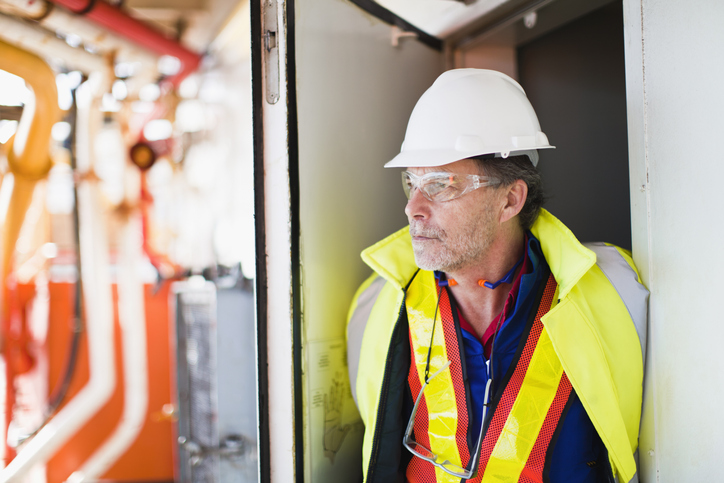Oil rig jobs are dangerous by nature. The life-threatening potential hazards combined with questionable safety standards lead to many serious injuries and deaths every year.
The Facts About Oil Industry Accidents
The Occupational Safety and Health Administration (OSHA) reports that over 4,000 oil field workers are injured each year, and more than 100 workers are killed annually on the job. If you or a loved one has been injured, it’s time to start your personal injury claim.
Most Common Causes of Oil Rig Accidents
In a personal injury case, establishing negligence and fault is essential. Understanding why accidents happen can help you claim your compensation. According to Enjuris, the most common causes of oil rig accidents are as follows:
● Explosions and fires
Workers who are required to work with heavy machines and highly-combustible substances, combined with unpredictable weather create a recipe for explosions. Explosions are a common on oil rigs, and what makes oil rig explosions and fires even more terrifying is that local fire departments don’t often know how to deal with them! According to the National Fire Protection Agency, local fire response agencies, many of which are staffed by volunteers trained primarily in fighting structure fires, aren’t familiar with oil industry activities and practices, and often don’t have enough water, equipment, firefighters, training, and expertise to deal with oil rig fires.
Though the specific hazards that lead to an explosion or fire are endless, some common examples of potential hazards include:
- Improperly grounded electrical equipment or wiring
- Defective batteries
- Defective ventilation systems (which cause a back-up of hazardous fumes)
- Improperly stored fuel or other combustible substances
- Poorly maintained hoses, pipes, or pipelines that leak or spray fuel
- Improper use of welding devices or torches near combustible substances
- Corrosion of electrical equipment
- Failure to follow proper procedures for maintaining or cleaning equipment
- Human error
● Defective products
Defective products may cause oil rig accidents. Simply put, workers may work with heavy machinery or equipment that isn’t functioning properly and, as a result, is dangerous.
- Inadequate training
As the oil and gas industry continues to expand, more inexperienced workers are hired and not given adequate training.
As Ryan Hill, who heads the oil and gas extraction program at the Centers for Disease Control and Prevention’s National Institute for Occupational Safety and Health explained: “During times of high demand, there are new workers brought into this industry, and those are workers that may not have relevant training and experience. They didn’t grow up around the industry, especially in some of the newer oil fields.”
In 2006-2007, the industry surged and fatalities skyrocketed. However, during the great recession of 2009, the oil industry was forced to layoff less-experienced workers and the death rate plunged nearly in half.
Workers who lack sufficient training can pose a risk to themselves and other workers on a rig. If you feel that a lack of proper training led to your injuries, contact a personal injury attorney today!
● Improper oversight
Recent findings indicate that OSHA has largely failed to implement proper safety standards and procedures, and hasn’t conducted an adequate number of inspections. To make matters worse, even when these inspections do happen, oil and gas companies are routinely receiving safety violations. When you file a personal injury claim, an experienced oil rig accident attorney can help you document and prove the negligence that caused your injuries!
Common Oil Rig Injuries
Unfortunately, even when workers wear protective gear and follow safety precautions, unexpected injuries happen. According to Enjuris, the most common oil rig accident injuries include:
- Bone fractures or breaks from being struck by objects
- Chemical or third-degree burns from well blowouts, fires, and explosions
- Head or brain injuries from falling pipes, cables, casings, and other equipment
- Paralysis due to falls from derricks, ladders, platforms, slick stairways, and other unguarded heights
- Limb loss as a result of being crushed by heavy cargo or machinery
Personal Injury Claim Tips
The United States Bureau of Labor Statistics found that the median time an injured worker spent away from work after an oil drilling accident was 30 days. This is significantly higher than the national median of 7 days, according to Enjuris. To support your claim for compensation for an oil rig injury, keep track of workdays and wages missed because of your injury, medical records, and your day-to-day pains. A personal injury attorney can also help you calculate pain and suffering.
If you’ve been injured in an oil rig accident in Albuquerque, New Mexico or a nearby area, it’s time to get justice!
Contact your personal injury attorney at 505.207.4401




